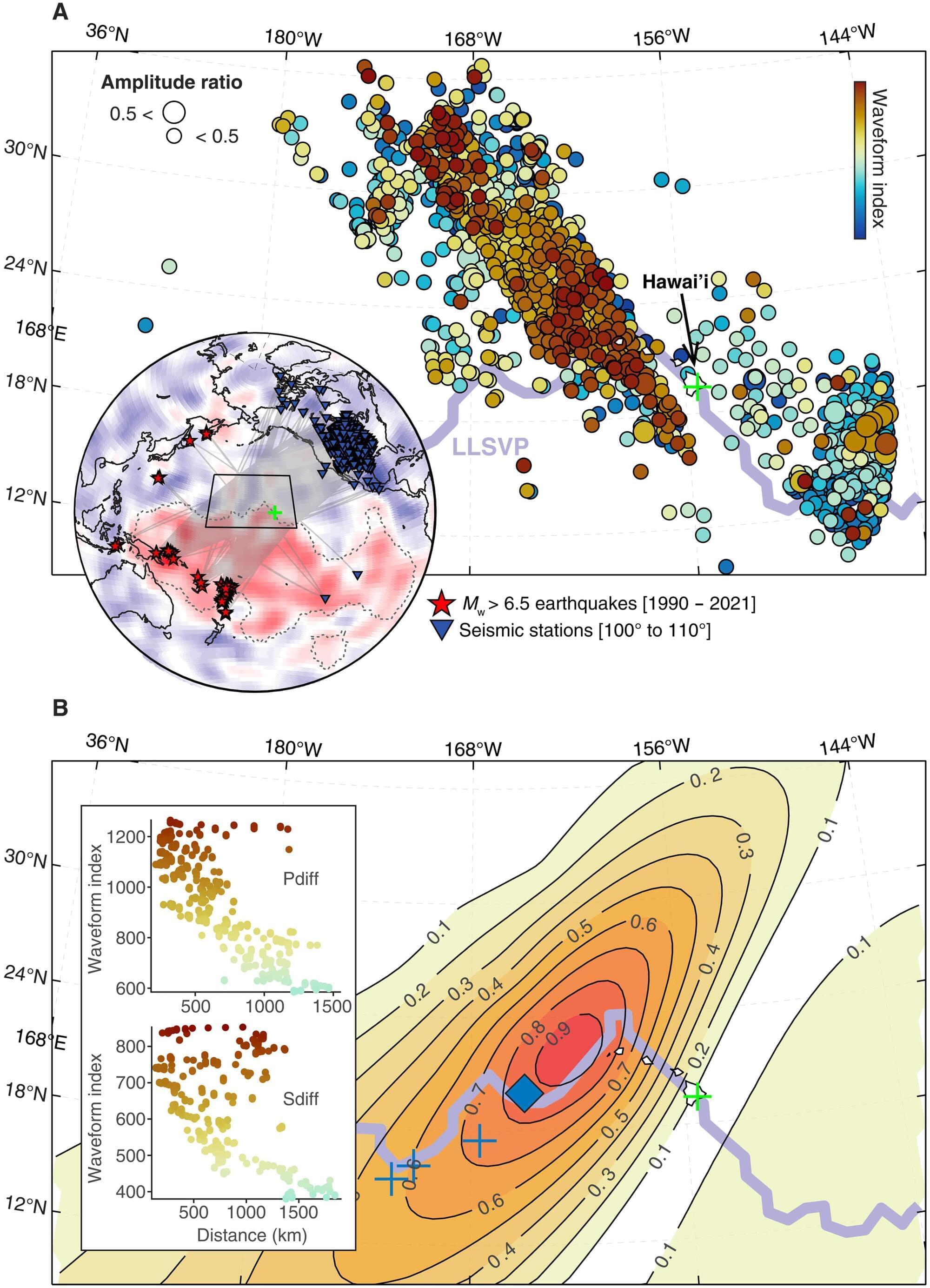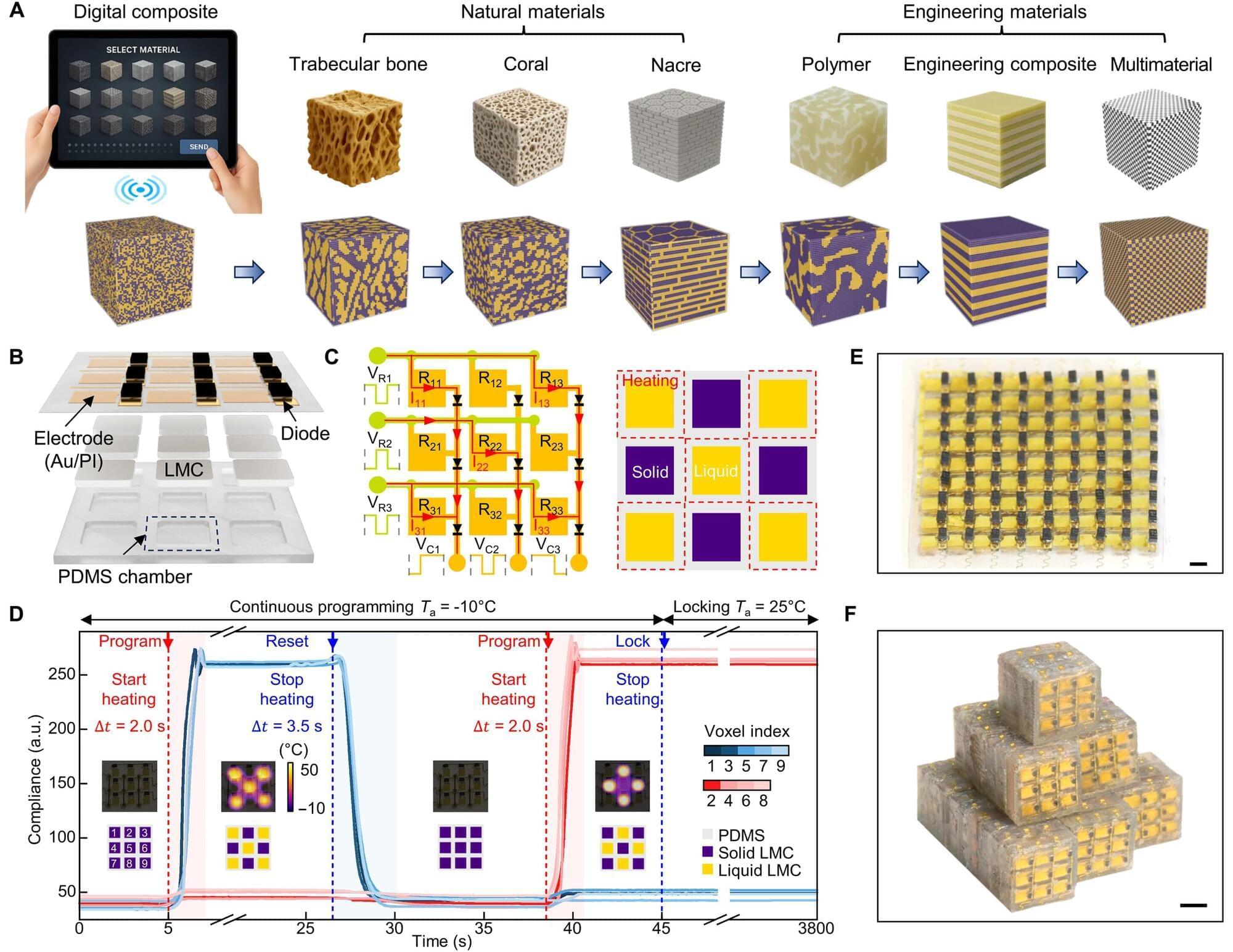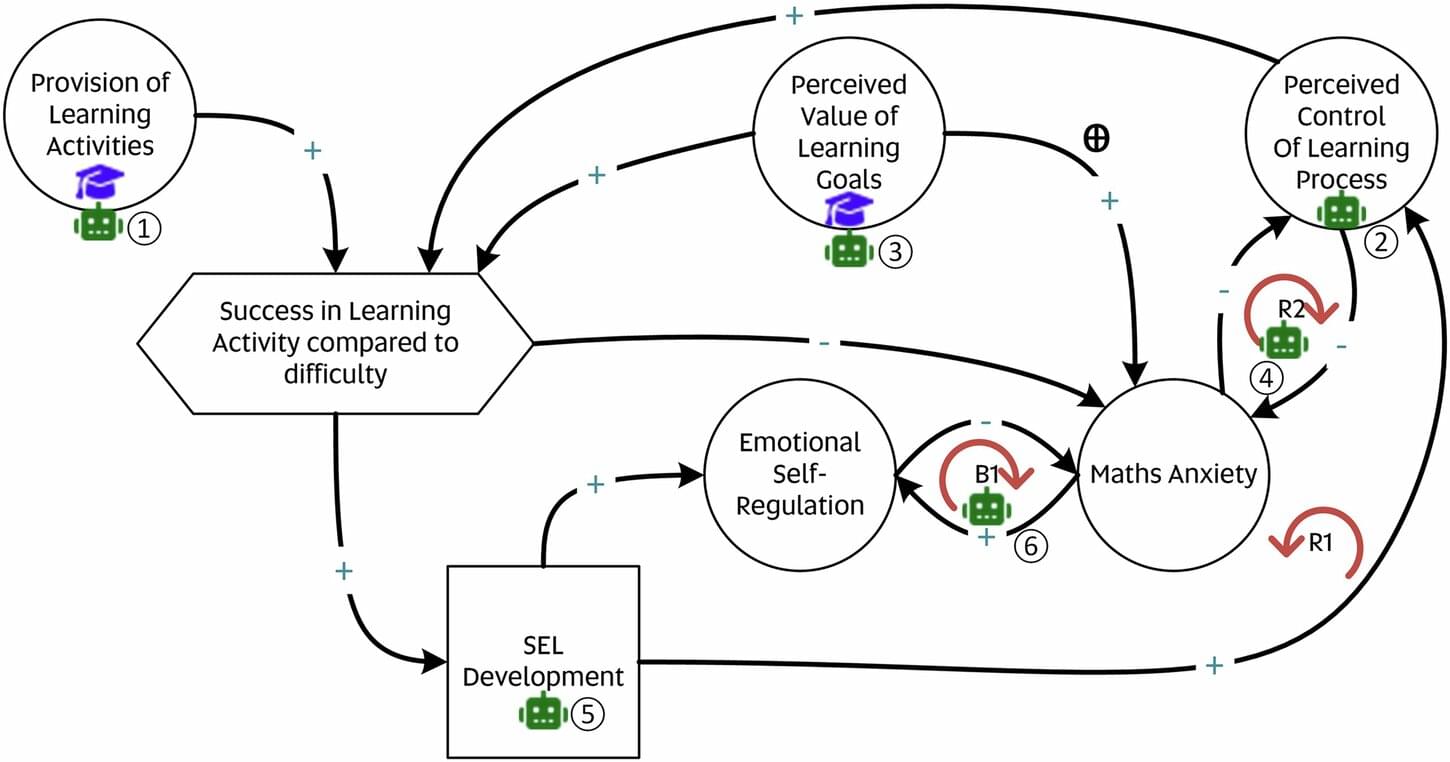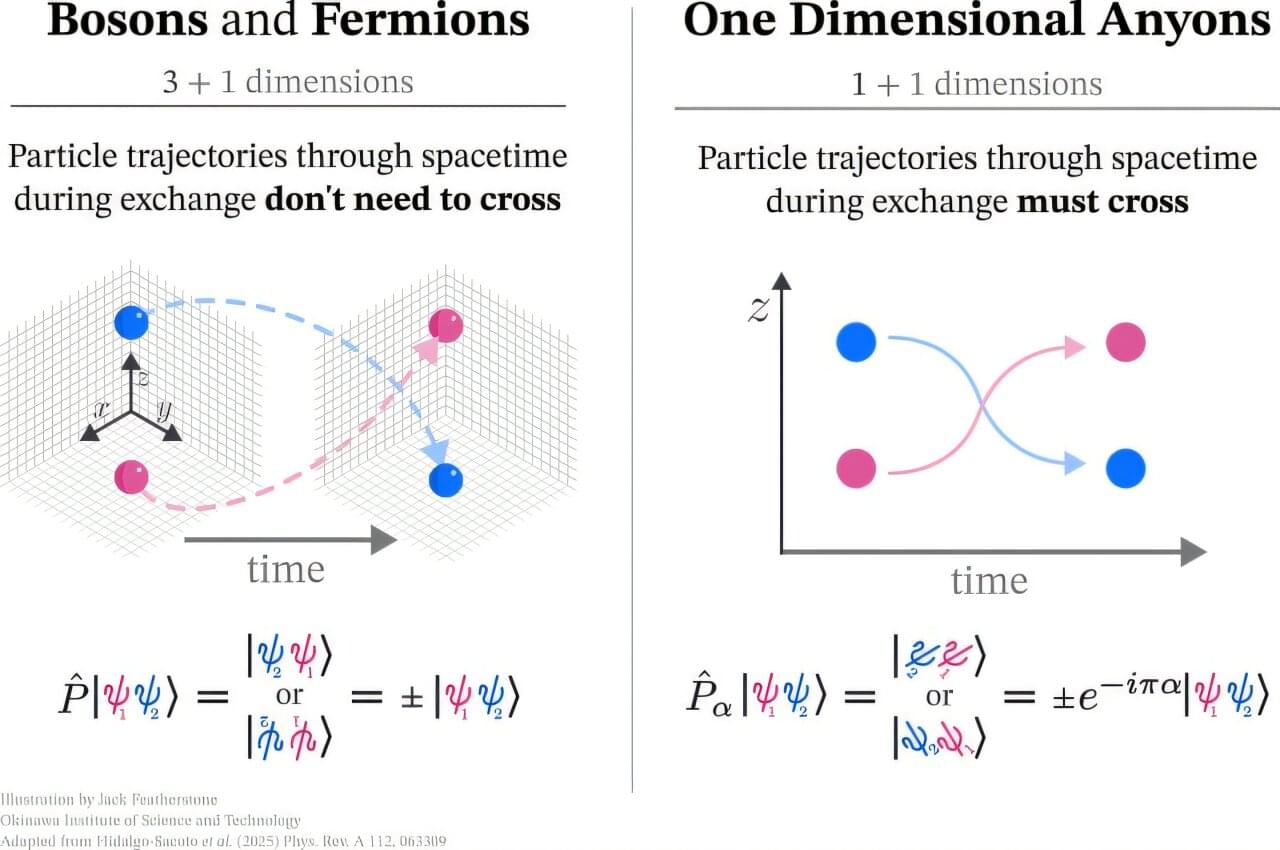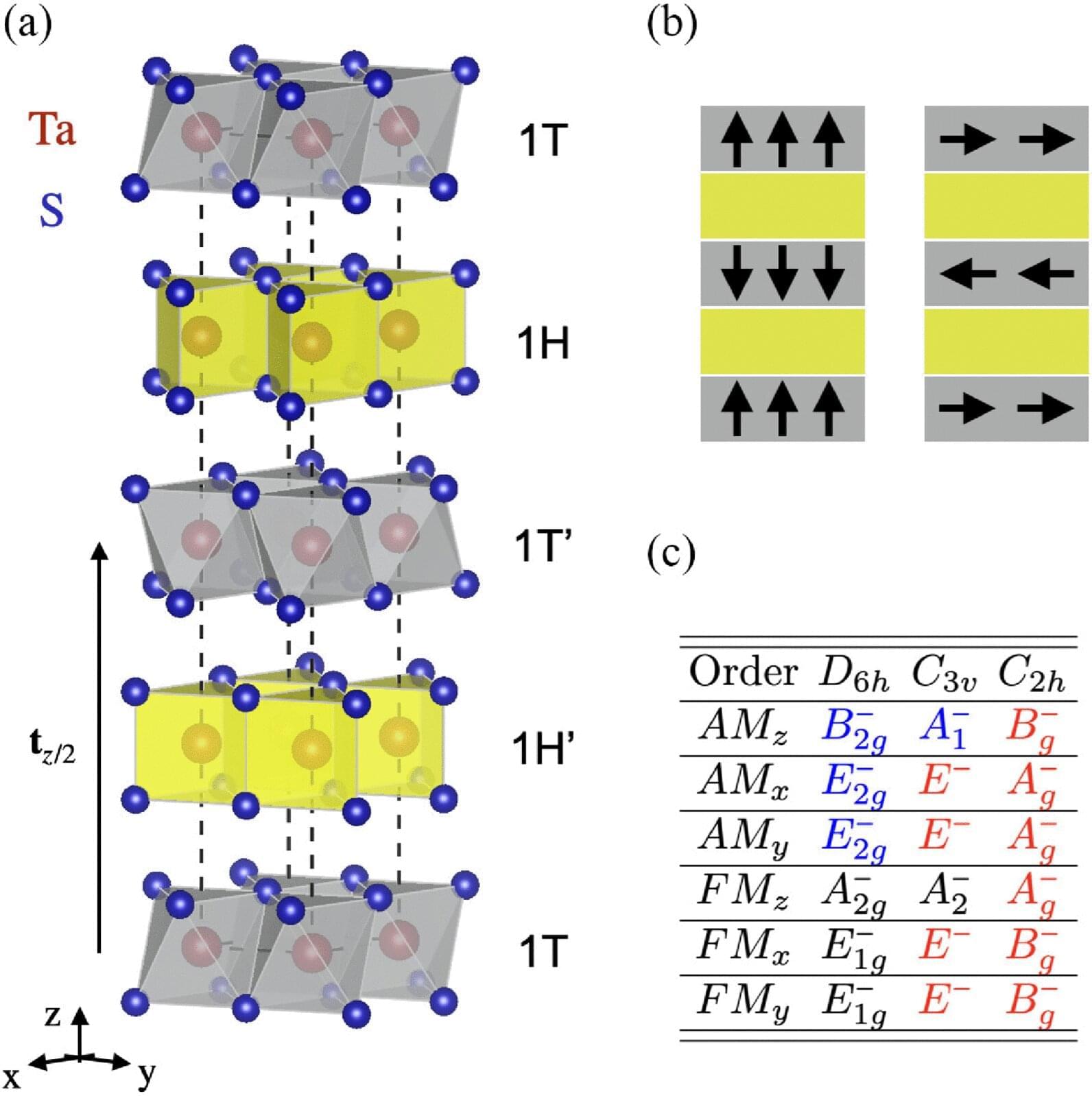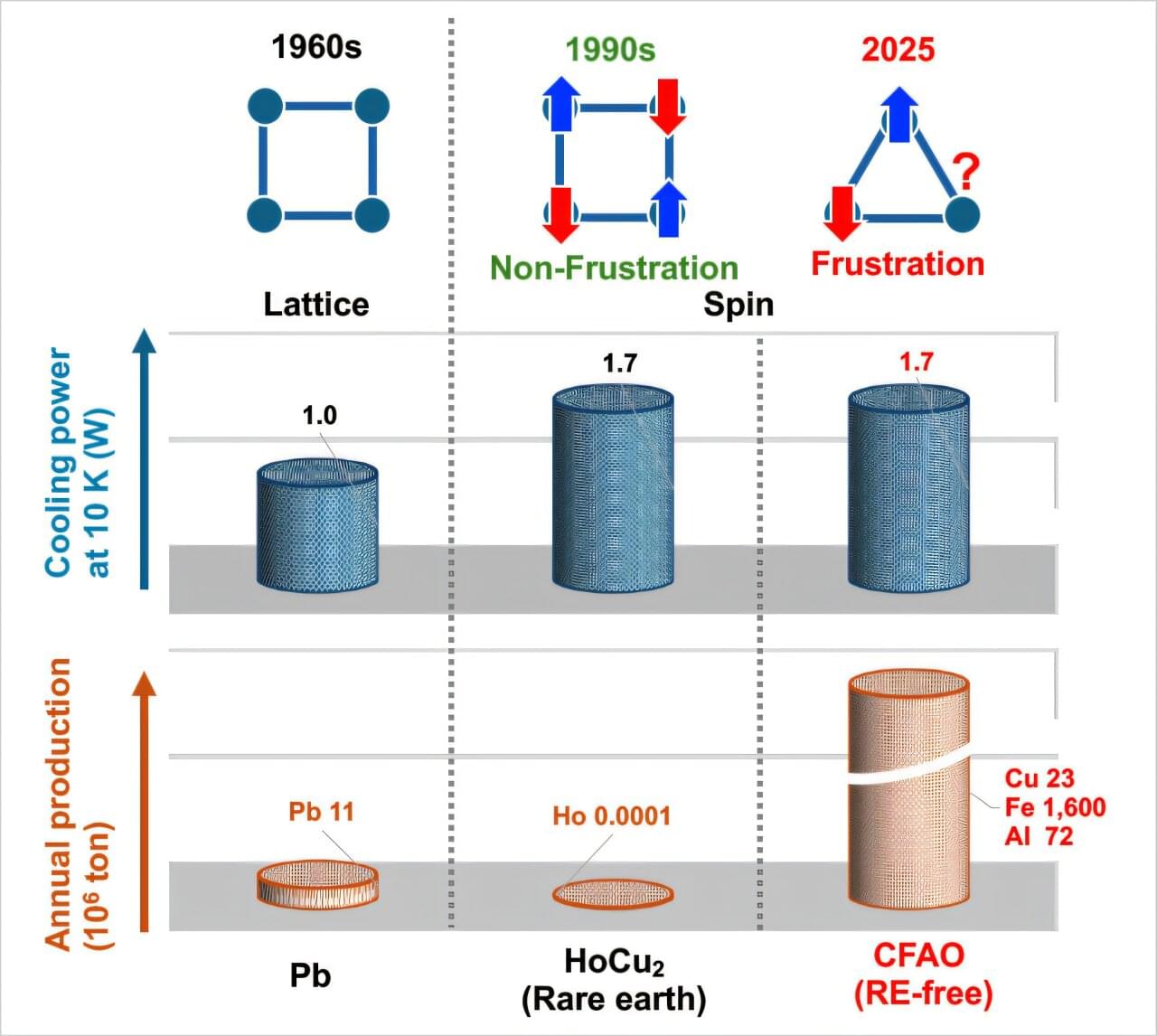Mantle plumes beneath volcanic hotspots, like Hawaii, Iceland, and the Galapagos, seem to be anchored into a large structure within the core-mantle boundary (CMB). A new study, published in Science Advances, takes a deeper dive into the structure under Hawaii using P-and S-wave analysis and mineralogical modeling, revealing its composition and properties.
It is known that anomalous structures exist within Earth’s lower mantle, including large low-velocity provinces (LLVPs) and ultra low-velocity zones (ULVZs), which cause seismic waves to slow down dramatically. Larger ULVZs, typically referred to as mega-ultra low velocity zones, are found near the CMB and often beneath oceanic hotspots like Hawaii. Mega-ULVZs can be over several hundred kilometers in length. Previous studies have linked these megastructures to mantle plumes and some say they may preserve primordial geochemical signatures.
However, current tomographic methods have been unable to fully analyze mega-ULVZs, and their composition and origin remain unclear. Seismic waves, on the other hand, present a way to investigate ULVZs, largely due to the effect ULVZs have on wave velocity.
